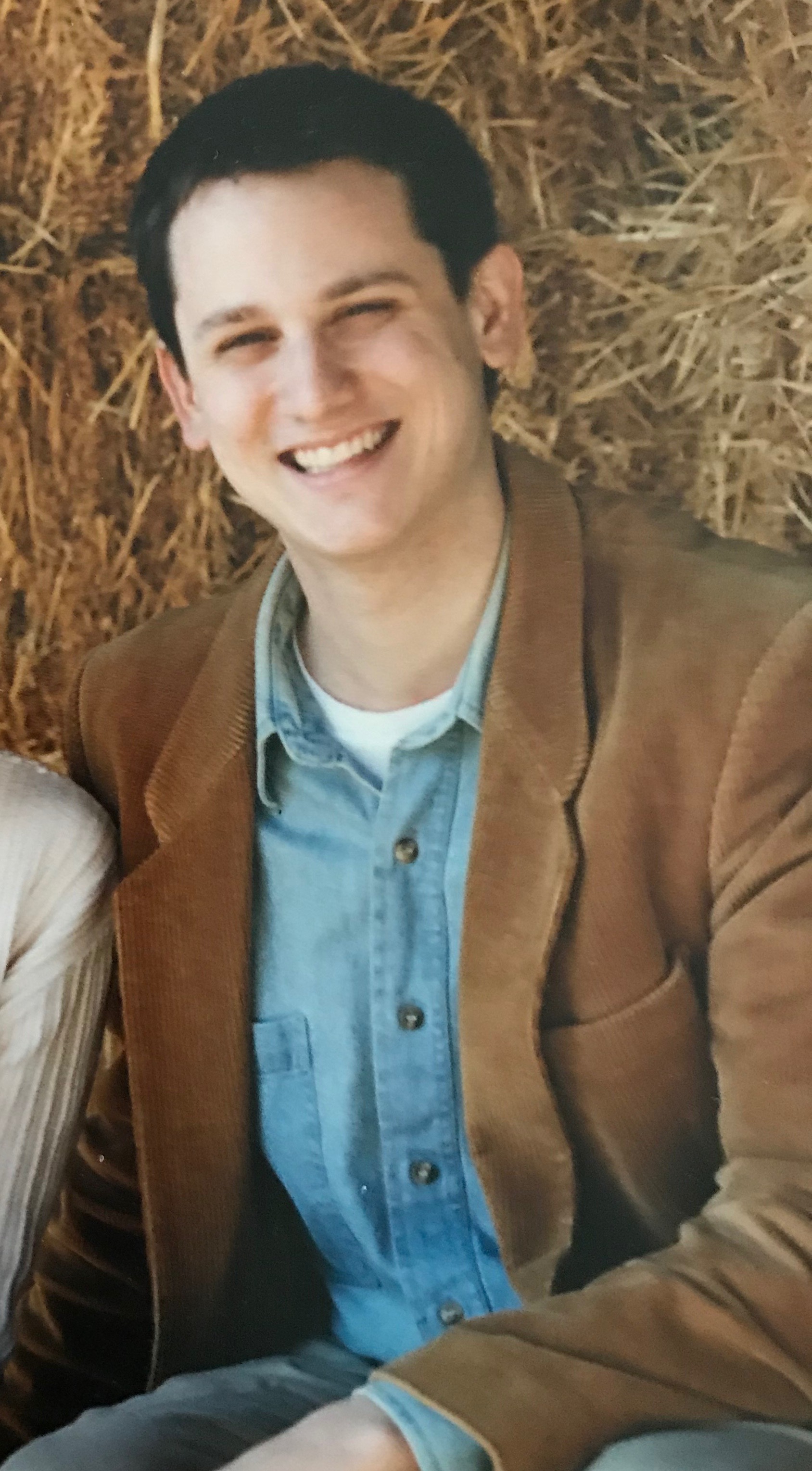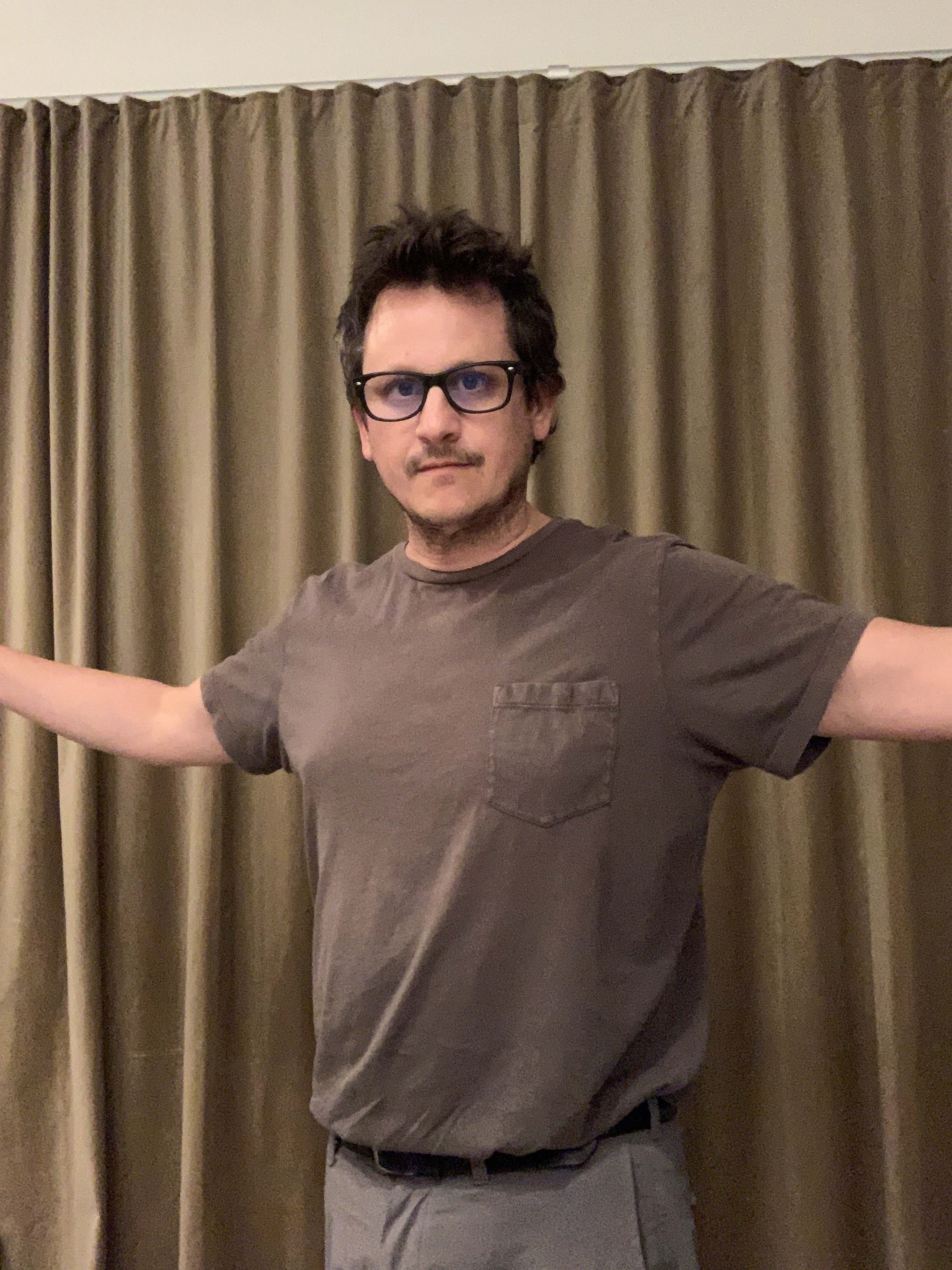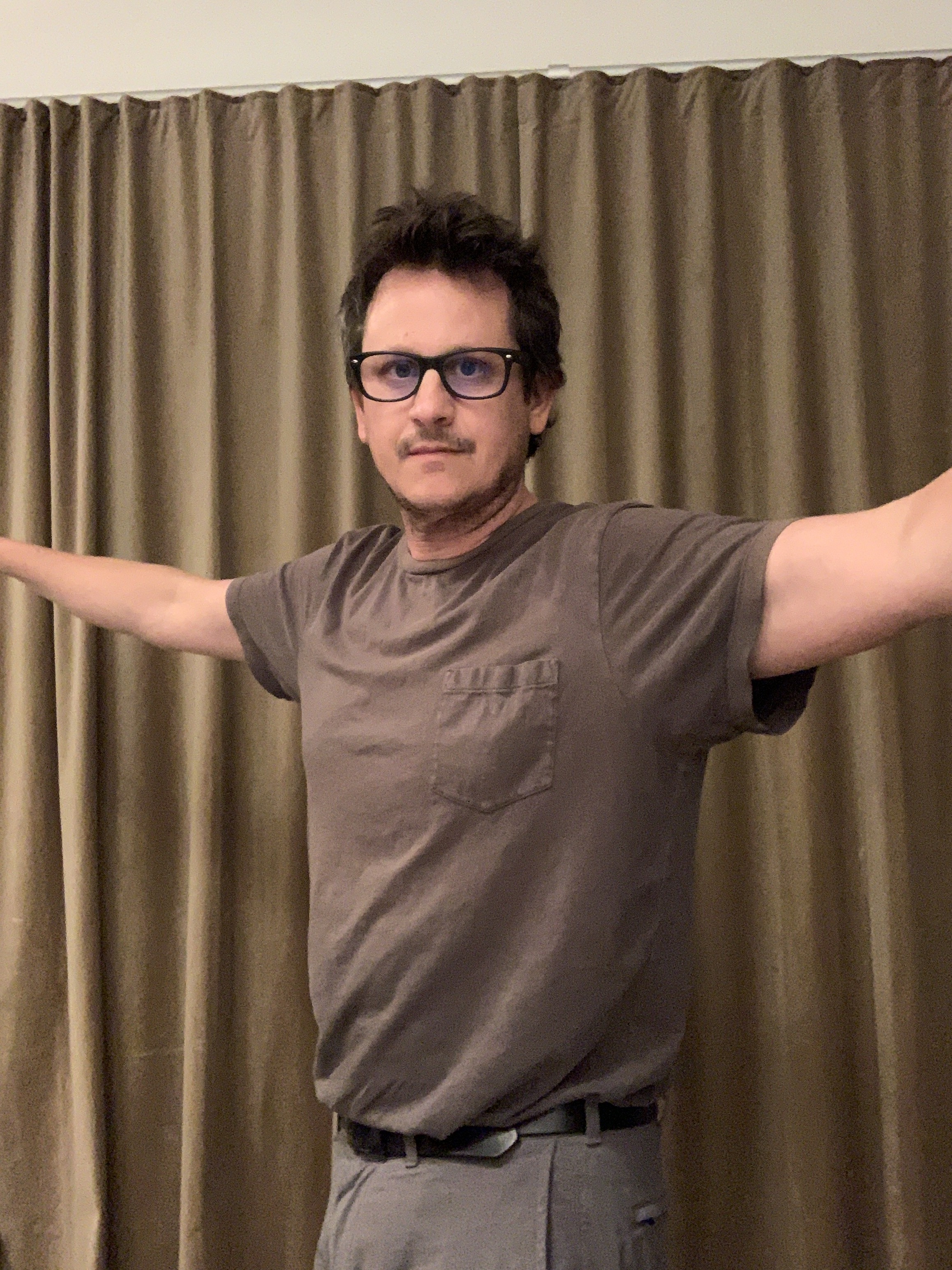The chunky teen years
Growing up, my parents fed us healthy food, and I was never what you’d call an obese kid. Even so, I was a bit of a late bloomer, and my body got a bit chunky from about 9–10th grade. Not fat, just… chunky.
Truth be told, I hated it. I wore baggy clothes to try to hide it. It chipped away at my confidence, and I spent more time alone. It made me not like myself, which was not like me.
Thinking back, I can’t even completely blame it on out-of-whack hormones or typical teenage body changes. What may have been happening was high school anxiety. Some social, some academic—all of which may have made me eat more than I can consciously remember.
I’d always been an active kid, spending most of my time outdoors in the woods or around the neighborhood playing with friends. But around that chunky year or two, I got really into computers, and writing and playing video games. I don’t necessarily regret that time, because I loved all the design, thought, and creativity that went into working my hobby. But in hindsight, I realize I was spending way too much time alone, and not nearly enough time outside. It didn’t help that I was small for my age and had no desire to play competitive sports.



So it became a cycle of sorts. More time alone in front of a computer (or with a friend) meant little to no time outside, and certainly no regular exercise.
At some point before 11th grade started, I decided I’d had enough. I made the choice to start jogging, like the wrestlers I knew did at practice and on their own to drop weight. My parents were supportive, and my dad even jogged alongside me at night.
It was hard at first, and I felt foolish, but eventually I got faster and leaner. By the time I started 11th grade, I was thin again, but at a healthy weight, and I got my old confidence and sense of humor back. I was still young-looking and smaller for my age than most of my peers, but the rest of high school became much more fun and easier because I had that confidence, with a positive body image being a big part of that.
The chunky adult years
I continued jogging in college for the same reasons—it made me look and feel good.
Then I transferred colleges, stopped running, and picked up smoking every winter when it started to get cold again (this was back when I lived on the East Coast). In the spring, I’d quit smoking and start running again to get back in shape. This cycle went on throughout my late 20s, before I moved to San Francisco at 33 and decided I’d never touch a cigarette again. At that time, I was drifting a bit personally and professionally, as I’d been laid off before moving and had to look for work in a new city and terrible economy. So I took the first full-time job I could get, even though I had my doubts about it.
My instincts were correct in that the job was not the healthiest professional environment, and after 2.5 years, it started to wear on me. I became a chunky adult during this time, eating more than I needed to and not exercising at all.
Again, I decided I had enough.
Again, I started running and added yoga to the mix, doing both 3–4 times a week. I was in the best shape of my life. I stayed fitness-minded for the next several years, and got engaged and married to a wonderful woman who’s still very fitness and healthy-food oriented.
Fast-forward to a few years ahead, when my wife and I became homeowners and new parents. Fitness fell off my radar, and I gained about 20 pounds along with her (I co-indulged in a lot of frozen yogurt—her go-to craving, among other sugary and fatty delights).
Over the years, I made some half-assed attempts to start exercising again, but it never lasted.
In fact, it would be another eight years or so, starting around February 2019, when I’d start exercising again. The same thing had happened and I didn’t even realize it: I wasn’t happy at work, so I’d gained even more weight—20 pounds overweight this time around—and I wasn’t making time to exercise at all. Both of which kept me chunky. I also realized I wasn’t doing anything to manage my stress and anxiety, of which there’s plenty to go around when you’re a working parent of two young kids, as I am.
Are you starting to detect a pattern here?
Honestly I’ve always been aware of my ups and downs—both mental and physical, which are of course intertwined. But late last year and early this year, it took my wife and parents openly worrying about my health—and gently pointing out my growing gut—that made me say “Enough is enough” once more.
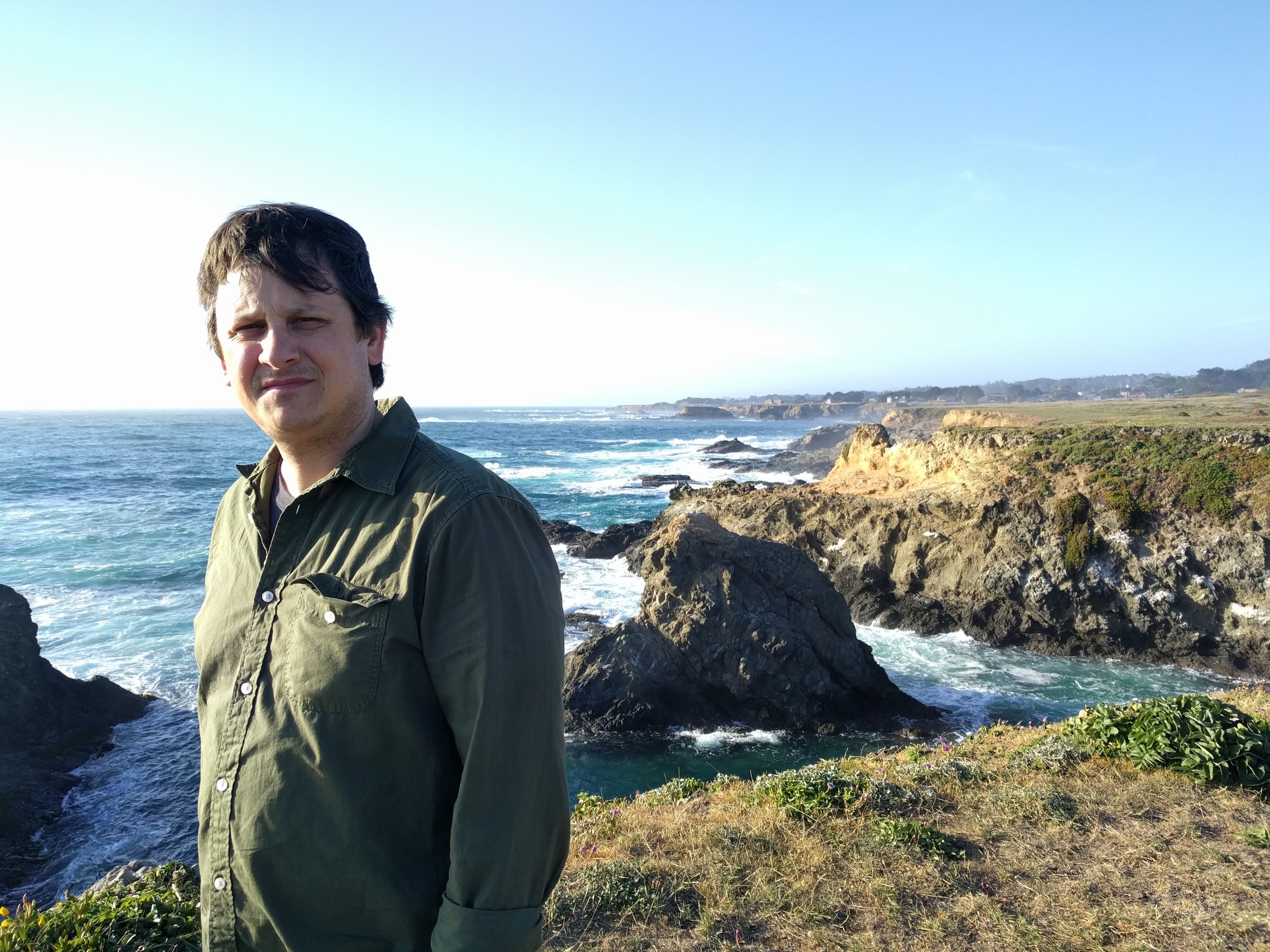
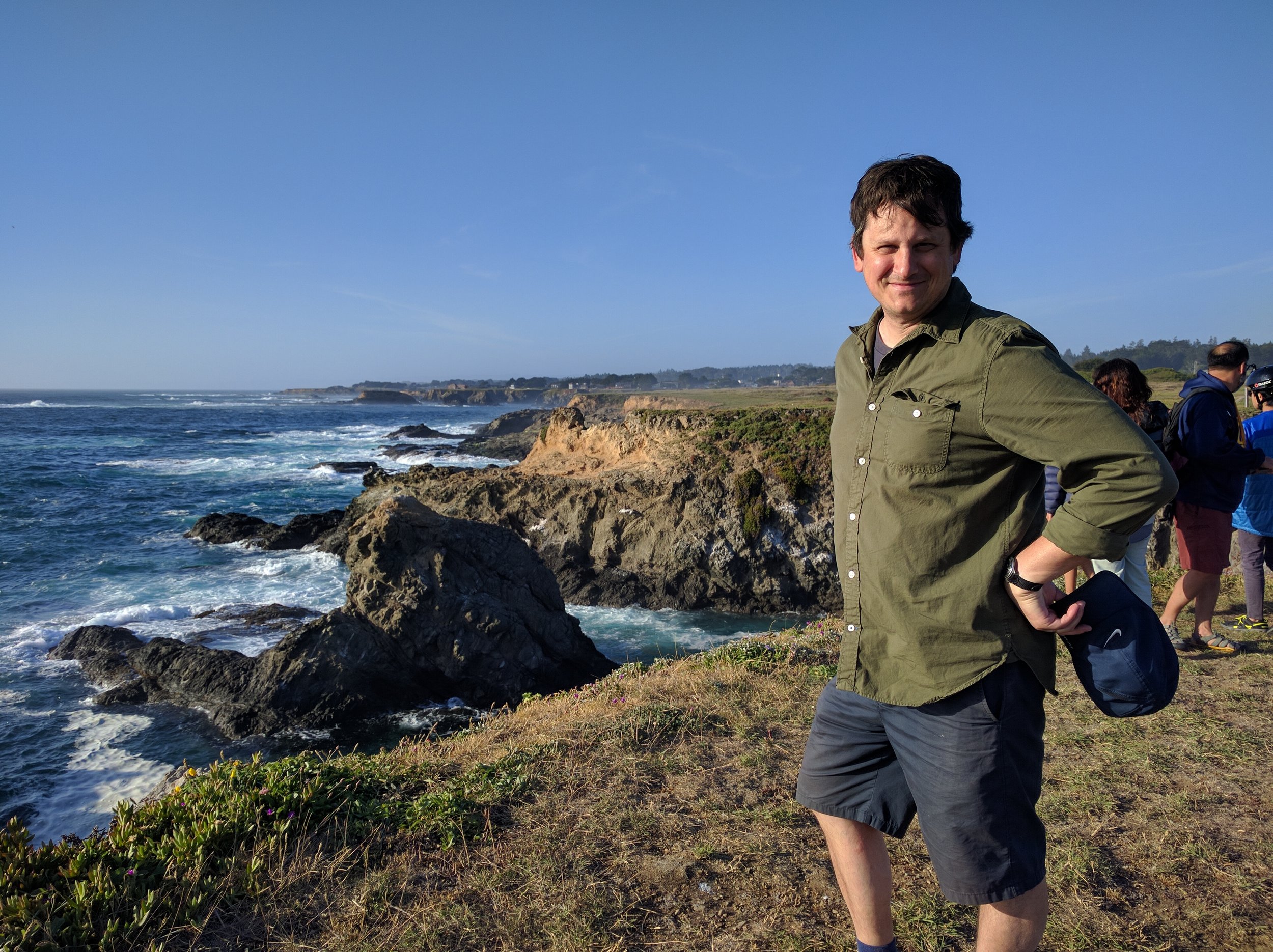


“How the hell am I going to lose 20 pounds?”
Again, I made the decision to start running—at least two times a week, ideally three—and I had my wife’s full support. But I was scared I wouldn’t be able to do it. I’d never had to drop 20 pounds before. It seemed so daunting, I didn’t even want to start. I tipped the scale at 180 pounds, the fattest I’d ever been. And yes, with my protruding gut, I was starting to look… fat.
Somehow I found the courage to buy some new running shoes and start going again—most often at 6:30 a.m. before kids, work and life kick into high gear, and when the weather is still cool.
Even so, I knew I had to change some new food and eating habits as well.
It took me at least 5–6 months, and a few months in, I plateaued HARD at 170 (halfway to my goal of 160). After a few weeks, I broke through that wobbly period and started going down again. At no time did I fast or starve myself, or feel like I was on a “diet,” although technically I was. I just started eating more conscientiously, and running at least 2-3 times a week (I’ve been going 3 times a week pretty reliably for the last several months now).
So here’s a list of the things that helped me, and that might help you, if you’re looking to lose weight as well:
I stopped:
Snacking at night. I’ve always been a three square meals-a-day kind of guy, but I did have a habit of eating potato chips at night, at least a few handfuls. Not good. So I banned chips in the house. For what it’s worth, James Brown didn’t eat after 6 p.m., and he was in great shape. If I have anything at night now, it’s usually a slice of cheese.
Eating a sweet after every dinner. This was a bad habit that carried through after my wife’s first pregnancy. It wasn’t about eating a whole thing of Oreos, more just that I “needed” a sweet after dinner, usually in the form of some garbage sugar snack like yogurt pretzels or mini-cookies from Trader Joe’s. I still allow myself a bite of chocolate chip cookie or banana bread on occasion when they’re around, but the “after dinner sweet” habit had to go.
Eating a lot of carbs. Pizza. Bread on sandwiches. Bagels. French fries. Burgers. I love them all, but they couldn’t be staples anymore. (Although I still have a bagel every Friday morning, which I treasure).
I started:
Eating more fruits and veggies. I hated yogurt and cottage cheese and fruit when I started my “diet” early this year, but I forced myself to have it in the mornings. Now I look forward to them. I didn’t think it would happen, but it’s true. As my wife says, when you start eating healthier foods, you start to crave them. I used to be a vegan and vegetarian, and while I’m not saying you have to do that to lose weight, I do suggest you limit your red meat intake. Fish and chicken with veggies are always a better choice.
Eating smaller portions. Being able to split an entree or eating lighter fare in general was not something I’d ever been very good at until this year. Now I can order less, eat less, bring leftovers home for the next day. This is hard at first, but then it becomes second nature, and doesn’t feel like denial—it feels freeing.
Making fitness a priority. I’m not what I’d call a naturally obese person (most people aren’t, to my knowledge), but I can’t keep my weight down without exercising—especially as I get older. My job entails sitting at a computer most days, along with a lot of deadlines. Regular inactivity plus stress is a recipe for disaster. The one thing I learned from the Don Juan books is you have to fight old age. Exercise—any form of exercise—is the key to reducing stress, keeping off excess weight, boosting confidence, and having a clear mind.
That probably doesn’t seem like a very complicated list, and there’s no crazy diet involved. It’s 30 minutes of aerobic exercise a week and conscientious eating. If you go veg or vegan and exercise, it’s almost impossible to NOT lose weight—even if you eat some meat here and there.
Look, I hope you don’t take this as a preachy article. I’m sharing because I’m proud of the accomplishment, and I’m hoping this post helps someone else, too. I know my wife and friends and family have said they’re inspired by the physical and mental changes they see in me, which of course makes me proud. And I like setting a good physical and mental example for my children—i.e. “Dad’s going for a run,” not looking overweight and unhealthy, not being stressed around the house.
Do I have six-pack abs now, you might ask? Am I ripped?
God, no. But I don’t have a double-chin anymore. I can fit into medium-sized adult shirts again, instead of large. I don’t silently get depressed at how I almost didn’t recognize myself in the reflection of a storefront window because of the size of my gut.
So if you’re feeling like it’s time for a change, it probably is. And while I hope to never backslide into the pattern of inactivity and chunkiness I described above again, I will always have to be vigilant.
At least I’m aware of the pattern. That, and having the courage to start the journey, are half the battle.
